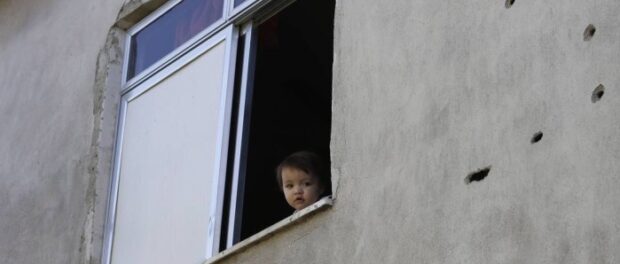
For the original in Portuguese published in O Globo, click here.
The score is being kept by a resident couple, to portray the reality of the community that has experienced the UPP police since 2012.
The war routine in Complexo do Alemão has left residents confined to their homes on 81% of the days this year. Since January, there have been shootings on 190 of the 232 days [up to August 20]. There was only a 42 day truce after the death of a boy hit by a rifle shot at the door of his home. These data were collected by a couple that lives in Alemão so as to portray the reality of the community, where a Pacifying Police Unit (UPP) was installed in 2012. During the daily battles, the soundtrack of fear is composed not only by gunshots, but also by grenade explosions and victims’ screams.
“The confrontations used to happen more often in Rua Dois, Nova Brasília, and Fazendinha. Now they are taking place in different locations. It seems like (policemen and criminals) keep circulating through the complex. The shootings have intensified as well,” explains Mariluce Mariá, an artist who has been keeping track of the developments together with her husband.
Until April 2, when 10-year-old Eduardo de Jesus was shot in front of his house in Grota—just the day before Elizabeth Alves, 41 years old, was killed by a stray bullet in front of her house in the same community—there had been confrontations every single day of the year. The death of the boy led the shootings to cease for more than a month. But they resumed as part of residents’ daily lives over the past 98 days. On August 20, Mariluce made note of more shootings and grenade explosions.
Shootings throughout the day
The neighborhoods of Areal, Beco do Flipp, Canitá, Inferno Verde, and Sabino are considered the most dangerous, but there is no territory in which you can find peace. There is also not one entirely safe place, since a stray bullet can hit someone, whether in an alley or at home. The times of the shootings have also become increasingly varied. While before they were mainly at night, they now take place during three different periods: in the morning (around the time schools start), early in the afternoon (as students leave school), and around 9pm as many people get home from work.
Violence has also had an impact on residents’ health. Mariluce explains how she was unable to walk for five days due to stress. She had to call on physical therapy.
“Only we know what we go through here,” she explains, recalling neighbors who have had exposed fractures while running to hide during a shooting.
In Inferno Verde, one mother has come up with a strategy. When there are shootings, the whole family—herself, her husband and two sons—sleep in the living room, where a wall is the guarantee nobody will be hit by a stray bullet. Extra pillows and sheets are already kept in the room in case they are needed.
“My bedroom, due to its position, can be hit at any moment. The living room is the only place in the house where my family feels a sense of safety,” she explains. “I want to take my kids to a playground. I want my son to be able to fly a kite on the street without fear.”
Interrupted leisure
The mother recalls how she went to the cinema in the community during school vacation, but was unable to watch the movie: “I looked at the screen and could not stop thinking how, at any moment, a gunshot could make a hole through the wall and hit us.”
Insecurity has also had a negative impact on the social projects that take place in the area. Just last Thursday, an activity organized to teach badminton to children was canceled. The cause was a shooting that happened the day before in Campo do Seu Zé, in the favela of Nova Brasília, where classes were supposed to take place. Camilo Coelho, head of the social project that was organized in cooperation with the Brazilian Olympic Committee, regretted the difficulties generated by the confrontations.
According to social scientist Silvia Ramos, coordinator of the Center for Studies on Security and Citizenship at the Candido Mendes University, the couple’s initiative to count the number of confrontations in the area shows how severe and alarming the situation in Alemão really is. “It’s a spectacular initiative. They are making sure both locals and outsiders realize what is happening there. It’s time to revise the strategy for that particular territory,” she says.
Paulo Storani, anthropologist and ex-captain of the Special Operations Battalion (BOPE), also believes the pacification project should be revised: “The UPP’s policing was not meant to fight highly dangerous criminals. The project is about community policing, a new concept that needs to be reviewed. Maybe the size of the territory makes it much more difficult to fight criminals,” he suggests.
In a statement, the Coordinating Office of the Pacifying Police stated that the challenges of the pacification process in Complexo do Alemão involve greater proximity to the community as well as the daily job of confronting crime. “The police have been doing their job, so even while we recognize the situation is still quite far from ideal, we cannot underestimate the advances achieved so far,” reads the statement. The official statement also highlights that pacification has led to an 85% decrease in homicide rates resulting from police intervention, in communities where the project was launched. Furthermore, the statement points out a decrease of 65% in intentional homicides in the region between 2008 and 2014.
Residents promise to take other initiatives. A march around the Complexo do Alemão took place on Saturday, August 22, in order to call attention to the climate of war in the area.

